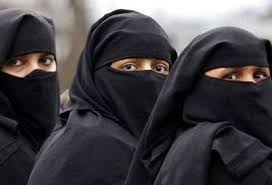”˜Talaq talaq talaq’- Divorced no more.

By Sudha Kumar
Triple talaq became illegal in India on 1 August 2019, replacing the triple talaq ordinance promulgated in February 2019.
In a major political win for the Modi government, the Rajya Sabha(upper house of Parliament), where the ruling NDA did not have a majority, approved the bill (99”“84 in favour) after a lengthy debate. The bill followed a 2017 Supreme Court ruling, that the practice of instant triple talaq is unconstitutional, and a divorce pronounced by uttering talaq three times in one sitting is void and illegal. In spite of the 2017 ruling, instant divorce by triple talaq was widely practised within the Islamic community. So legal petitions were filed by five women, each a victim of the triple talaq conveyed through phone calls, text or via mail.
The term ”˜talaq’ is commonly translated as “repudiation” or simply “divorce”.
In the Islamic community talaq is practised in different ways. Most of the practices have a waiting period and mutual agreements. These are based on Quranic principles and the Prophet Mohammed’s teachings.
Talaq-al-bi’dah is very different to the other practices, in that it is based on ”˜deviation from’ or ”˜innovation of’ the Mohammed’s teachings. Once talaq is proclaimed, there is no waiting period, it is instant and irrevocably terminates the marriage. The only way it can be revoked was by following another practice called ”˜nikah halala’ where the divorced woman is to marry another man, consummate the marriage, get divorced and then remarry her former husband. All with approval of the clergy. The Prophet Mohammed denounced this practice and the Caliph Umar made it a punishable offence. It is not practised by Shi’a Muslims.
Except for the practice of talaq-al-bi’dah (which is banned in most Islamic countries – Saudi Arabia, Morocco, Egypt, Afghanistan and Pakistan) Islamic divorce seemed to be ahead of its time in having the construct that, though patriarchal, was socially sound and encompassed the religious tenets, especially since it was a time when across the world religion was involved deeply in law making.
So then how is it that Talaq-al-bi’dah is/was ”˜ok’ in India? Or was it?
It was not acceptable by Muslim women way back in 1978, as evident by the famous Shah Bano case, and is not acceptable in 2019 as evident by the fact that it is five Muslim women who filed legal petitions against the practice. The common thread being they were all victims of an outdated and abhorrent practice. In recent times Prime Minister Modi received a petition signed by 40000 women requesting that action be taken against the practice.
The triple talaq practice in India therefore is but, a social manifestation of the preservation of a patriarchal practice, by a patriarchal system which interprets religion to its convenience. A system well supported by representative organisations like The All India Muslim Personal Law Board, which supports the practice, and the Islamic clergy.
The practice could have been dealt with, way back in 1986, when the Supreme Court of India gave its verdict in the Shah Bano case- that the petitioner be given maintenance for life, regardless of religion. This could have been turned into law, but the then ruling government balked, succumbed to pressure from the clergy, overturned the court ruling and said maintenance be paid only for the period of ”˜iddat’ (separation).
In an act of quiet defiance Shah Bano withdrew her maintenance claim. It took women ten steps backward and reaffirmed hopelessness in the hapless victims. But the vote bank was safe. And that is all that mattered.
Thirty three years later triple talaq becomes illegal in India. It is now a crime to divorce one’s spouse using the words ”˜talaq talaq talaq’. If reported by the wife or relative of the wife, the perpetrator could be jailed for a maximum of three years. It is a necessary step to ensure gender justice and empowers women. It should act as a deterrent to the practice. Or so we are told.
But does the criminalisation of the practice ensure all the above?
The consequence of divorce by triple talaq is desertion and destitution. That is the burden borne by society and so needs to be addressed.
So the questions raised are-Is desertion only the consequence of divorce by triple talaq? Does it not occur across society and across socio-economic-religious lines? Why is it that desertion by use of the words ”˜talaq talaq talaq’ a crime, but desertion without the words, not? Is there support for the wife and children who are abandoned and have become destitute, as the man may be in jail for up to three years? How can the words of the individuals reporting the crime be authenticated? Is the law not discriminatory in nature, as it allows for penal action against people of a particular religion?
Crime is not communal. It should not be made so. The main objective of any law should be justice, not punishment. But criminalisation only ensures punishment.
In light of the above, as of 24 August 2019, a new petition has been filed in the Supreme Court. The Court will now examine the validity of the new triple talaq law and has issued ”Šnotice to the Centre.
Meanwhile, the women and children, who were and are the only victims, can wait.
Short URL: https://indiandownunder.com.au/?p=14026
